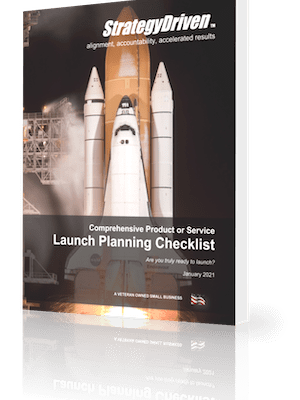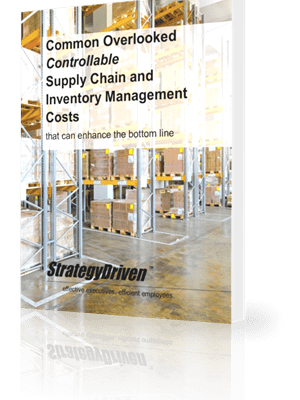How Smarter Money Tracking Can Influence Strategic Decisions
Your credit card statement arrives, and there’s that sinking feeling again. Where did all your money go? Most people can’t answer that question with any real precision, yet they’re making daily financial choices that’ll impact their future for years to come.
Smart businesses and individuals who master money tracking can save up to 30% on their SaaS stack alone, proving that visibility into spending patterns creates immediate, measurable results.
When you can see exactly where every dollar flows, strategic financial decision-making transforms from guesswork into a science.
The Science Behind Money Tracking and Decision Making
Understanding the psychological mechanisms behind effective money tracking reveals why data-driven approaches succeed where traditional methods fail. Research shows that people who track their spending make fundamentally different choices than those who don’t.
Behavioral Finance Insights That Drive Better Choices
Cognitive biases sabotage our financial decisions daily. Loss aversion makes us cling to poor investments, while the availability heuristic causes us to overweight recent expensive purchases when planning future budgets. However, tracking creates accountability that cuts through these mental shortcuts.
When you record every transaction, emotional spending decreases dramatically. The simple act of writing down or categorizing expenses forces conscious evaluation of each purchase decision. For businesses, adopting this disciplined approach can transform reactive spending into strategic financial planning.
That’s why many turn to trusted professionals at Wyntree Bookkeeping, a service known for helping organizations implement efficient, transparent tracking systems that support long-term financial health.
Data-Driven Finance Beyond Basic Budgeting
Moving beyond expense recording to predictive financial modeling changes everything. Pattern recognition in personal finance management reveals spending cycles you never noticed. Maybe your grocery bills spike every third week, or professional development costs cluster in spring months.
Real-time data influences split-second decisions. When your tracking system shows you’re 80% through your dining budget by mid-month, you’ll choose differently than if you’re flying blind. This shift from reactive to proactive financial decision making compounds over time, creating wealth-building momentum.
Advanced Money Tracking Systems for Strategic Decision Making
Modern tracking systems capture comprehensive financial data and convert it into actionable strategic insights. These sophisticated tools harness behavioral finance principles to maximize their effectiveness.
Multi-Platform Integration Strategies
Connecting bank accounts, investment platforms, and business finances creates a complete financial picture. Automated categorization using AI-powered analysis eliminates manual entry errors while maintaining accuracy. Real-time sync across devices means family members can coordinate spending decisions instantly.
Integration prevents blind spots that derail even well-intentioned budgeting strategies. When all accounts feed into one dashboard, you’ll catch subscription creep, identify duplicate services, and optimize cash flow timing.
Predictive Analytics in Personal Finance Management
Historical data forecasts future spending patterns with surprising accuracy. Cash flow forecasting helps both personal and business finances avoid liquidity crunches. Seasonal analysis reveals when major expenses typically hit, allowing proactive preparation.
These insights transform personal finance management from crisis response to strategic planning. You’ll know three months ahead when property tax bills will strain cash flow, enabling gradual accumulation rather than scrambling for funds.
ROI Tracking for Life Decisions
Measuring return on investment for education, career moves, and major purchases requires sophisticated tracking. Opportunity cost analysis using tracked financial data reveals the true price of every choice. Long-term impact assessment of recurring expenses shows how small monthly fees compound into substantial annual costs.
Strategic Decision Frameworks Using Financial Data
Converting comprehensive financial data into actionable strategic decisions requires proven methodologies that maximize the impact of your tracking efforts.
The 5-Layer Decision Matrix
Emergency fund optimization based on spending patterns ensures you’re not over-saving or under-prepared. Investment timing using cash flow analysis helps you avoid selling assets during temporary cash crunches. Debt payoff strategies informed by earning trends prevent premature payments that could strain liquidity.
This framework prevents the common mistake of making isolated financial decisions without considering their broader impact on your complete financial ecosystem.
Real-Time Decision Triggers
Setting up automated alerts for budget deviations catches problems before they become crises. Dynamic spending limits based on income fluctuations prevent overspending during irregular earning periods. Goal-based allocation adjustments keep long-term objectives on track despite short-term volatility.
As per a CFO Dive report in November 2024, an accountant at Macy’s hid as much as $154M in expenses since the fourth quarter of 2021.This highlights how critical real-time monitoring becomes for preventing financial disasters through early detection systems.
Technology-Enhanced Budgeting Strategies
Cutting-edge technology amplifies traditional budgeting strategies exponentially, creating opportunities that weren’t possible just five years ago.
AI-Powered Financial Assistants
Machine learning algorithms predict expense patterns with increasing accuracy as they learn your habits. Automated savings optimization moves money to high-yield accounts during cash surpluses. Personalized financial coaching through data analysis identifies your unique spending triggers and suggests targeted improvements.
These systems don’t replace human judgment but enhance decision-making speed and accuracy, particularly for routine financial choices that drain mental energy.
Open Banking Revolution
Leveraging API connections provides comprehensive financial visibility across institutions. Third-party app integrations enable specialized tracking for everything from cryptocurrency to small business expenses. Security considerations require careful evaluation, but the benefits of unified data access typically outweigh the risks.
Business Applications of Strategic Money Tracking
Entrepreneurs and business owners can leverage advanced tracking strategies for competitive advantage, applying the same principles that work for personal finance at an organizational scale.
Cash Flow Intelligence for Small Businesses
Real-time liquidity monitoring enables proactive decision-making rather than reactive crisis management. Vendor payment optimization using cash flow predictions improves supplier relationships while maximizing working capital efficiency. Revenue forecasting based on historical patterns helps businesses plan growth investments confidently.
Professional Service Firms and Project Profitability
Time and expense tracking for accurate project costing reveals which clients and services generate the highest returns. Client profitability analysis helps optimize pricing strategies and resource allocation. Performance data guides future business development efforts toward the most lucrative opportunities.
Common Money Tracking Pitfalls and Solutions
Despite powerful benefits, many people and businesses stumble into predictable traps that undermine their tracking success. Recognition and avoidance of these issues ensure sustainable systems.
Over-Categorization and Analysis Paralysis
Finding the right balance between detail and usability prevents systems from becoming burdensome. Automation strategies reduce manual tracking requirements while maintaining accuracy. Focus metrics should drive the biggest impact rather than tracking everything possible.
Start simple with broad categories, then add granularity only where it provides actionable insights for your specific situation.
Data Accuracy and Reconciliation Challenges
Best practices for maintaining clean financial data include regular reconciliation workflows and duplicate transaction handling. Monthly workflows that work require consistent timing and clear processes. Automation helps, but human oversight remains essential for catching errors that algorithms miss.
Advanced Metrics That Drive Better Decisions
Beyond basic tracking lies sophisticated measurement that elevates financial decision-making to an entirely new level of strategic thinking.
Personal Financial Ratios Beyond Net Worth
Debt-to-income optimization strategies focus on sustainable ratios rather than absolute debt amounts. Savings rate benchmarking reveals whether you’re on track for long-term goals. Investment allocation efficiency metrics help optimize returns while managing risk appropriately.
These ratios provide context that raw dollar amounts can’t convey, enabling more nuanced strategic decisions.
Velocity of Money Analysis
Understanding how quickly money moves through your financial system reveals optimization opportunities. Cash flow timing affects everything from investment returns to bill payment strategies. Business operations benefit tremendously from understanding money velocity patterns.
Implementation Roadmap for Smarter Money Tracking
This step-by-step strategy transforms theory into practice through measurable phases that build momentum and deliver results.
30-Day Quick Start Protocol
Essential tracking setup focuses on capturing the most impactful data first. Key metrics to monitor from day one include cash flow, major expense categories, and income timing. Early wins build tracking momentum and demonstrate immediate value.
Don’t try to track everything perfectly from the start. Focus on consistent habits that provide useful insights for your most pressing financial decisions.
90-Day Optimization Phase
Advanced features and automation setup streamline processes after basic habits are established. Historical analysis and pattern identification reveal trends that weren’t visible in shorter timeframes. Decision framework implementation connects tracking data to actual strategic choices.
Measuring Success: KPIs for Strategic Money Management
Quantifying the impact of strategic money tracking efforts enables continuous improvement and demonstrates return on investment in tracking systems.
Personal Finance Success Metrics
Improvement in financial decision speed and accuracy reduces stress while improving outcomes. Reduction in buyer’s remorse and impulsive purchases creates immediate budget relief. Progress toward long-term financial goals becomes measurable and predictable rather than hopeful.
Track these qualitative improvements alongside quantitative metrics for a complete picture of tracking system effectiveness.
Business Finance Success Indicators
Cash flow predictability and stability enable confident strategic planning. Profitability improvement through better expense management flows directly to the bottom line. Strategic investment timing optimization maximizes returns while minimizing risk exposure.
Common Questions About Smart Money Tracking
1. How does regularly tracking your financial progress help you manage your finances?
Regularly analyzing your financial data allows you to identify areas of improvement, make necessary adjustments, and capitalize on opportunities available to you.
2. Why should we keep track of and save our money?
Tracking your expenses helps you prioritize spending, track your results, and see what changes you need to make to achieve your goals and create the financial future you want. It also enables you to build an emergency fund, giving you a cushion to fall back on during unexpected events.
3. What’s the difference between basic budgeting and strategic money tracking?
Basic budgeting focuses on spending limits, while strategic tracking analyzes patterns to optimize decisions, predict future needs, and align spending with long-term goals for maximum financial impact.












Leave a Reply
Want to join the discussion?Feel free to contribute!